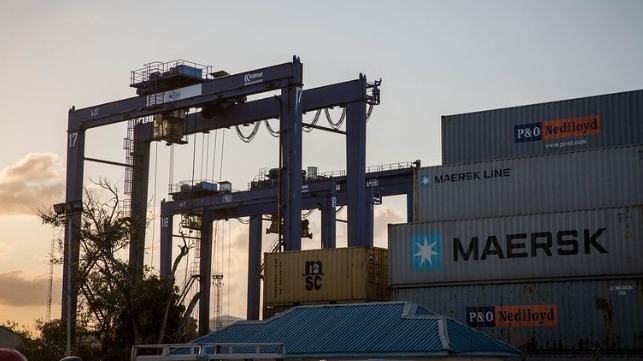Tanzania to Ban Storage of Dangerous Cargo Within Port Premises

Importers of hazardous cargo in Tanzania will have to incur extra storage charges after authorities announced plans to ban the storage of dangerous goods within the Dar es Salaam port premises.
Following the port of Beirut tragedy last year, Tanzania has joined a growing list of countries tightening safety management of dangerous cargo in order to enhance safety within its major gateway.
The Tanzania Shipping Agencies Corporation (Tasac) announced that effective January 2022, importers of explosive consignments and other goods deemed dangerous will be required to evacuate them from the port premises upon offloading.
"All cargo which have been classified according to International Maritime Dangerous Goods (IMDG) Code as classes will not be allowed to be stored into the port premises and therefore will be treated under direct delivery procedures in order to safeguard the people, port infrastructures, properties and environment," said Tasac in a statement.
Tanzania is the latest to join a growing list of countries that are enhancing and tightening safety measures in handling of dangerous cargo following the deadly port of Beirut tragedy.
In August last year, a massive explosion ignited by 2,750 tons of ammonium nitrate stored in one of the port’s hangars ripped through the port, killing over 200 people, wounding over 6,500 and leaving over 300,000 people displaced.
The World Bank estimated the cost of the physical damage to be between $3.8 billion and $4.6 billion with the economic losses amounting to $2.9 billion to $3.5 billion.
China, South Africa and Iraq are among countries that have announced enhanced measures in the importation, storage and handling of hazardous cargo.
In Tanzania, importers of explosives and other embargoed consignments like flammable solids and gases, substances liable to spontaneous combustion and substances which emit flammable gases when they come into contact with water will be required to identify alternative storage sites away from the port premises.
The IMDG code classifies explosives, gases, flammable liquids, flammable solids or substances, oxidizing substances and organic peroxides, radioactive material and corrosive substances as dangerous goods whose transportation by sea must be handled with extreme caution.
The ban on storage of dangerous goods within the Dar es Salaam port premises comes at a time when the East Africa nation is investing $421 million in a modernization and expansion project to increase the handling capacity of the facility.
The modernization project includes strengthening and deepening of berths 1-7 and RORO terminal, dredging of the entrance channel, turning circle and harbor basin, strengthening and deepening of berths 8-11, and construction of a new terminal jetty, among others.
Tanzania projects the volume of cargo at the Dar es Salaam port will hit 25 million ton in 2025 compared to 17.5 million tons handled in 2020, translating to a 43 percent increase.
